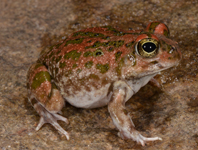Abstract
A new genus of springtail, Sernatropiella gen. nov., from Cundinamarca province, Colombia, was found at an altitude close to 3.000 m above sea level. It is the largest Neanuridae known in the Northern part of the South American Transition Zone. It is characterized by the presence of a strong hypertrichosis, five eyes per side, very small moruliform postantennal organ and a long buccal beak. Mouth parts very thin and slender. Body with paratergal areas different from other Pseudachorutinae of the region. Thorax and abdominal segments I and II with pre- and post-segmental tergites with setae, and most remarkable is the presence of pseudocelli on head, thorax and abdomen of the type species Sernatropiella pinzonae gen. et sp. nov. A new combination for Neotropiella malkini Arlé, 1981 as Sernatropiella malkini (Arlé, 1981) comb. nov. is given and is considered as a member of the new genus.
References
Arango, A., Palacios-Vargas, J.G., Vázquez, M. & Marín, E.P. (2018) Revision of Palmanura Cassagnau, 1983 (Collembola: Neanuridae: Neanurinae: Sensillanurini). Zootaxa, 4483 (1), 128–154.
https://doi.org/10.11646/zootaxa.4483.1.5
Arlé, R. (1981) Conspecto das espécies brasileiras de Pseudachorutinae, com descrição de uma espécie nova da Colômbia (Insecta, Collembola). Acta Amazonica, 11 (3), 583–593.
https://doi.org/10.1590/1809-43921981113583
Cassagnau, P. (1983) Un nouveau modèle phylogénétique chez les collemboles Neanurinae. Nouvelle Revue d’Entomologie, 13, 3–27.
Dallai, R. (1973) Richerche sui Collemboli XVIII. La cuticola e gli gnatiti di Tetrodontophora bielanensis (Waga) al microscopio elettronico a scansione. Redia, 54, 105–116.
D’Haese, C.A. (2003) Homology and morphology in Poduromorpha (Hexapoda, Collembola). European Journal of Entomolology, 101, 385–407.
https://doi.org/10.14411/eje.2003.060
Handschin, E. (1942) Materialien zur revision der Collembolen. Die gattung Ceratrimeria C. B. sensu Womersley. Verhandhungen der Naturforschenden Gesellschaft in Basel, 53, 265–282.
Massoud, Z. (1967) Monographie des Neanuridae, Collemboles Poduromorphes à pièces buccales modifiées. In: Delamare Deboutteville, C. & Rapoport, E.H. (Eds.), Biologie de l’Amerique Australe. Vol. 3. Paris, CNRS, pp. 7–399.
Morrone, J.J. (2015). Biogeographical regionalization of the Andean Region. Zootaxa, 3936 (2), 207–236.
https://doi.org/10.11646/zootaxa.3936.2.3
Murphy, D.H. (1971) Revision of the tropical marine littoral genus Pseudanurida Schött (Collembola: Pseudachorutinae). Pacific Insects, 13 (1), 49–63.
Queiroz, G.C. & Zeppelini, D. (2017) Neotropical Pseudachorutinae (Hexapoda: Collembola: Neanuridae): A comparative morphological study with emphasis on endemic taxa. Zoologischer Anzeiger, 269, 127–145.
https://doi.org/10.1016/j.jcz.2017.08.005
Stach, J. (1949) The Apterygotan fauna of Poland in relation to the world-fauna of this group of insects. Families: Neogastruridae and Brachystomellidae. Polska Akademia Umiejętności, Acta monographica Musei Historiae Naturalis, Kraków, 341 pp.
Weiner, W.M. (1996) Generic revision of Onychiurinae (Collembola: Onychiuridae) with a cladistic analysis. Annals of the Entomological Society of France, New Series, 32, 163–200.

